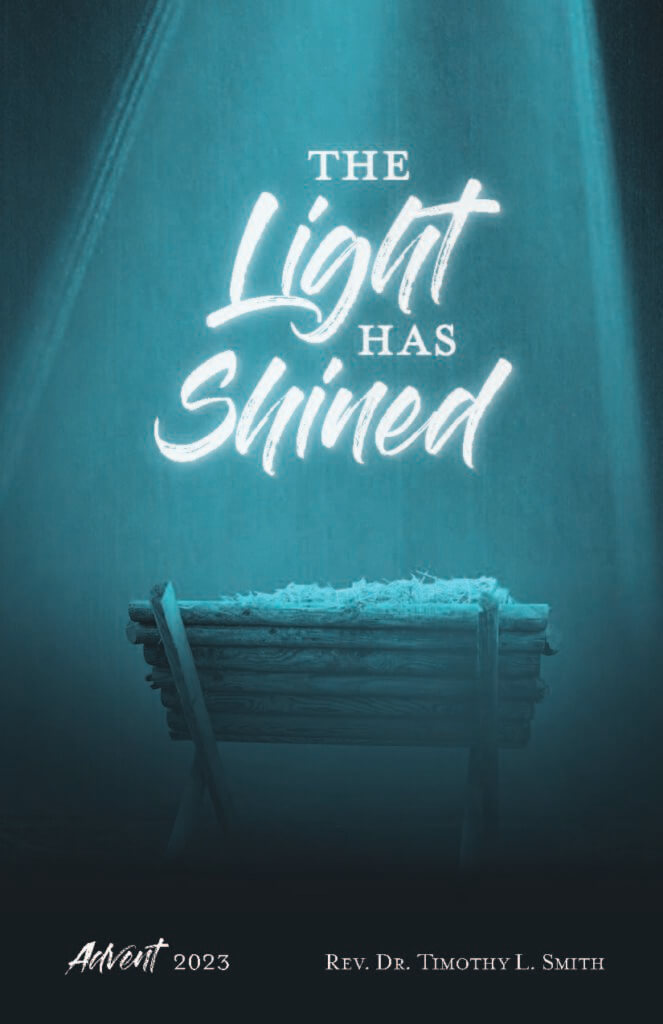His authority shall grow continually,
and there shall be endless peace
for the throne of David and his kingdom.
He will establish and uphold it
with justice and with righteousness
from this time onwards and for evermore.
The zeal of the LORD of hosts will do this.
Isaiah 9:7
Do you ever wonder why David and “the throne of David” keep popping up in the Christmas story? Whether in song, sermon, or script, this heroic yet complicated and sometimes infuriating man keeps showing up for Christmas.
Notice how so early in Luke’s gospel he tells us that Mary was betrothed to Joseph “of the house of David” (Luke 1:26-27). When Gabriel announces to Mary that she will bear a son, Gabriel specifies that the Lord “will give to him the throne of his ancestor David” (Luke 1:32). Right about that same time the priest Zechariah, father of John the Baptist, praises God for raising up a mighty Savior “in the house of his servant David” (Luke 1:69). Luke also wants readers to know that Joseph and Mary went to Bethlehem, “because Joseph was descended from the house of David” (Luke 2:4). On that first Christmas night the herald angel mentions David, announcing to shepherds, “to you is born this day in the city of David, a Savior, who is the Messiah, the Lord” (Luke 2:11).
The New Testament opens with its first words intending to connect Jesus’ birth to David: “An account of the genealogy of Jesus Messiah, the son of David” (Matthew 1:1). Matthew proceeds to record, not Jesus’ complete genealogy, but only a genealogy linking Jesus to David (c.f. Luke 3:27). Matthew centers the genealogy on the number 14, as David’s name in Hebrew has the value of 14. Matthew formats Jesus’ genealogy in order to make David the 14th name in the genealogy: “So all the generations from Abraham to David are fourteen generations; and from David to the deportation to Babylon, fourteen generations; and from the deportation to Babylon to the Messiah, fourteen generations” (Matthew 1:17).
Then, as the Gospel story unfolds, the narrative hinges on the question about Jesus: “Can this be the Son of David?” (Matthew 12:23; 20:30-31; 21:9, 15; 22:44-45). Early confessions of faith in Jesus have to do with His con- nection to David: “Blessed is the coming kingdom of our ancestor David” (Mark 11:10), and “Have mercy on us, Son of David” (Matthew 9:27). Crowds hailed Jesus as Son of David when He entered Jerusalem for the last time: “Hosanna to the Son of David” (Matthew 21:15). The apostle Paul opens his letter to Roman Christians wanting to link the Gospel about Jesus to David: “the gospel concerning his Son, who was descended from David according to the flesh” (Romans 1:3). On its last page, the Bible closes out with Jesus’ words: “It is I, Jesus…I am the root and the descendant of David” (Revelation 22:16). Jesus is David’s ancestor as well as His offspring.
Christmas is so closely connected to David in the Bible that Christmas can be summed up in four words: PROMISE MADE, PROMISE KEPT. Christmas is about the promise that God made to David and about God’s keeping of that promise through Jesus’ birth. The Lord made this promise to David one thousand years before Jesus’ birth when David wanted to ‘build a house’ for worship of the Lord. Instead, the Lord promised to ‘build a house’ for David:
“Moreover, the LORD declares to you that the LORD will make you a house. When your days are fulfilled and you lie down with your ancestors, I will raise up your offspring after you, who shall come forth from your body, and I will establish his kingdom. He shall build a house for my name, and I will establish the throne of his kingdom forever”
(2 Samuel 7:11-13)
God kept His word to David just as the psalmist foretold: “The LORD swore to David a sure oath from which he will not turn back: ‘One of the sons of your body I will set on your throne’” (Psalm 132:11). The playing out of David’s life shows again “The LORD is faithful in all his words, and gracious in all his deeds” (Psalm 145:13b). We can only imagine the excitement of the shepherds hearing the angel’s announcement just for them: “to you is born this day in the city of David, a Savior, who is the Messiah, the Lord” (Luke 2:11).
From cover to cover the Bible lays out God’s grand story of how He uses ordinary people to carry forth His saving purpose for the world: people like Abraham, Moses, Mary, and Saul of Tarsus. The Bible never presents David as a model life but as an actual life that God sovereignly blesses and uses. David is yet one more example of Teresa of Avila’s words about God writing straight with crooked lines. Therefore, it pleased God to take that broken,often wayward life of David and name His Son “the Son of David.”
We live in troubled times, but the Bible promises that when Jesus returns “He’ll rule from the historic David throne over that promised kingdom. He’ll put that kingdom on firm footing and keep it going with fair dealing and right living beginning now and lasting always” (Isaiah 9:7, The Message). PROMISE MADE, PROMISE KEPT!
PRAY
Faithful God, we thank You that You always keep Your promise. We believe Your promises to us, but sometimes doubt them. We confess our sin, then doubt Your forgiveness. We endure trouble, yet doubt that You work all things together for good. So today we thank You for David’s story and Your faithfulness to him when He was faithless. Write straight our crooked lines, as You did with David’s life.


